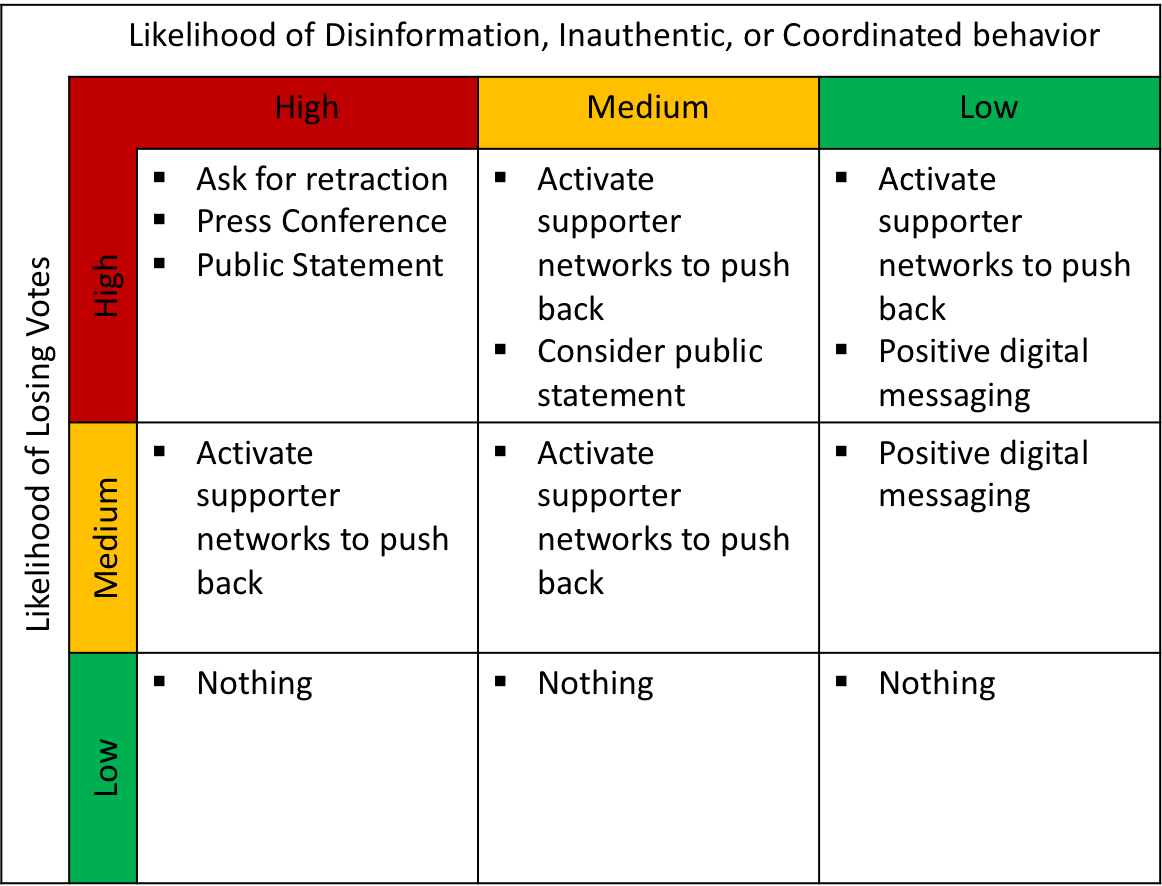How campaigns can protect themselves from deepfakes, disinformation, and social media manipulation
by Lisa Kaplan, Brookings Institution, January 10th, 2019
It is a time of great danger for American political campaigns and their staff as advances in digital technology have created extraordinary threats. There are deepfake videos that falsify information and distort reality, false news creation and dissemination, robotic tweets and social media posts that spread inaccurate narratives, and systematic disinformation campaigns from foreign and domestic adversaries. Left unchecked, these tactics can disrupt campaigns, encourage extremism, sow discord, and undermine democratic discourse, but there are steps campaigners can take to protect themselves.
Evidence of Russian interference in the 2016 elections shows how easy it is to manipulate social media platforms, push divisive content, and sway the overall electorate. Russian tactics were relatively simple: create content and then use bot networks (a series of accounts controlled by computers) and trolls (individuals operating accounts to achieve destructive goals) to deliver deceptive, misleading, and inaccurate content to as many voters as possible. When successful, voters accepted content as fact, the media reported on it, or both. It is now apparent that any foreign or domestic actor can employ the same tactics to abuse social media platforms for personal, political, or financial gain.

IPA Permalink: https://information-professionals.org/campaigns-protecting-themselves/
